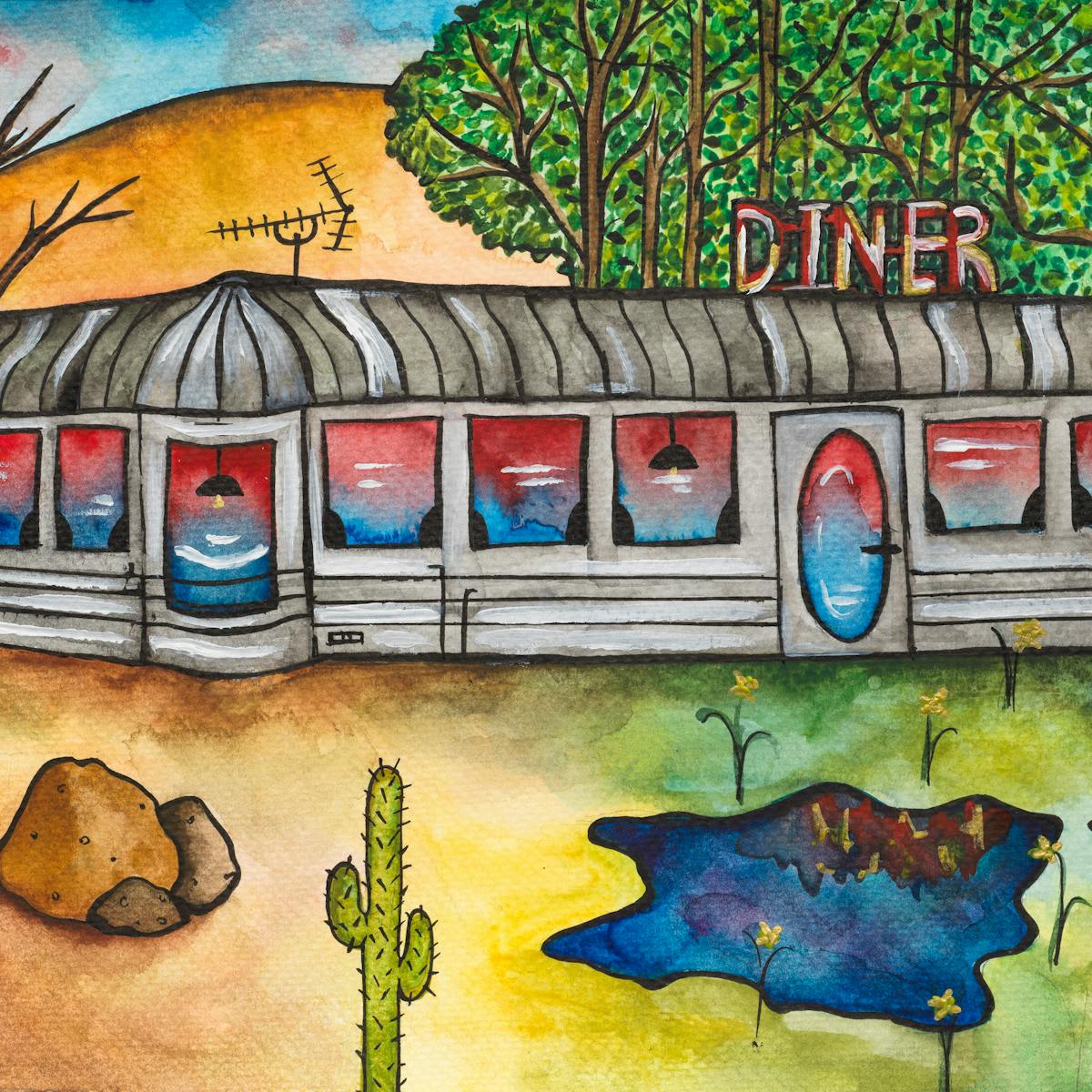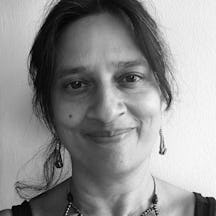Trying to recentre herself after her move back to the UK from the US, poet Bhanu Kapil remembered the art of Ana Mendieta, which reconnected the artist to the universe. In time, Kapil began to notice signs of the seasons, to look at the sun through water, to feel like herself again.
In 2004, I lay flat on the back seat of a Buick Riviera as it sped through Nebraska, a state so open and faint (that pale blue sky unfurling like a ribbon in the rear-view mirror), I felt dizzy. “Wake me up when we get to Iowa.”
Proprioception: the sensation of your bodily outline within a larger space. Too much space, and perhaps that boundary, that quality of being a particular person in a landscape modified by the memories other people might have of that landscape, starts to blur.
Nevertheless, there I was, hurtling across the high desert, then the plains and then the prairie, to Des Moines, to visit a retrospective of the works of a Cuban artist Ana Mendieta, who once described her art as a way to adhere to planetary time: “I am overwhelmed by the feeling of having been cast from the womb (nature). My art is the way I re-establish the bonds that unite me to the universe. It is a return to the maternal source.”
In Iowa City, I walk with a friend to the place by the stream where Mendieta created her first siluetas, the imprint of her form repeated in the riverbank mud, refilled with blossom, vermilion powder, clay and gunpowder flares. Finally, in Des Moines, I slip down the wall to watch the Pacific Ocean flood another silhouette, the bubbles and gurgling foam almost palpable through the grain and silver tarp of the Super 8 film. The red washes out to sea.
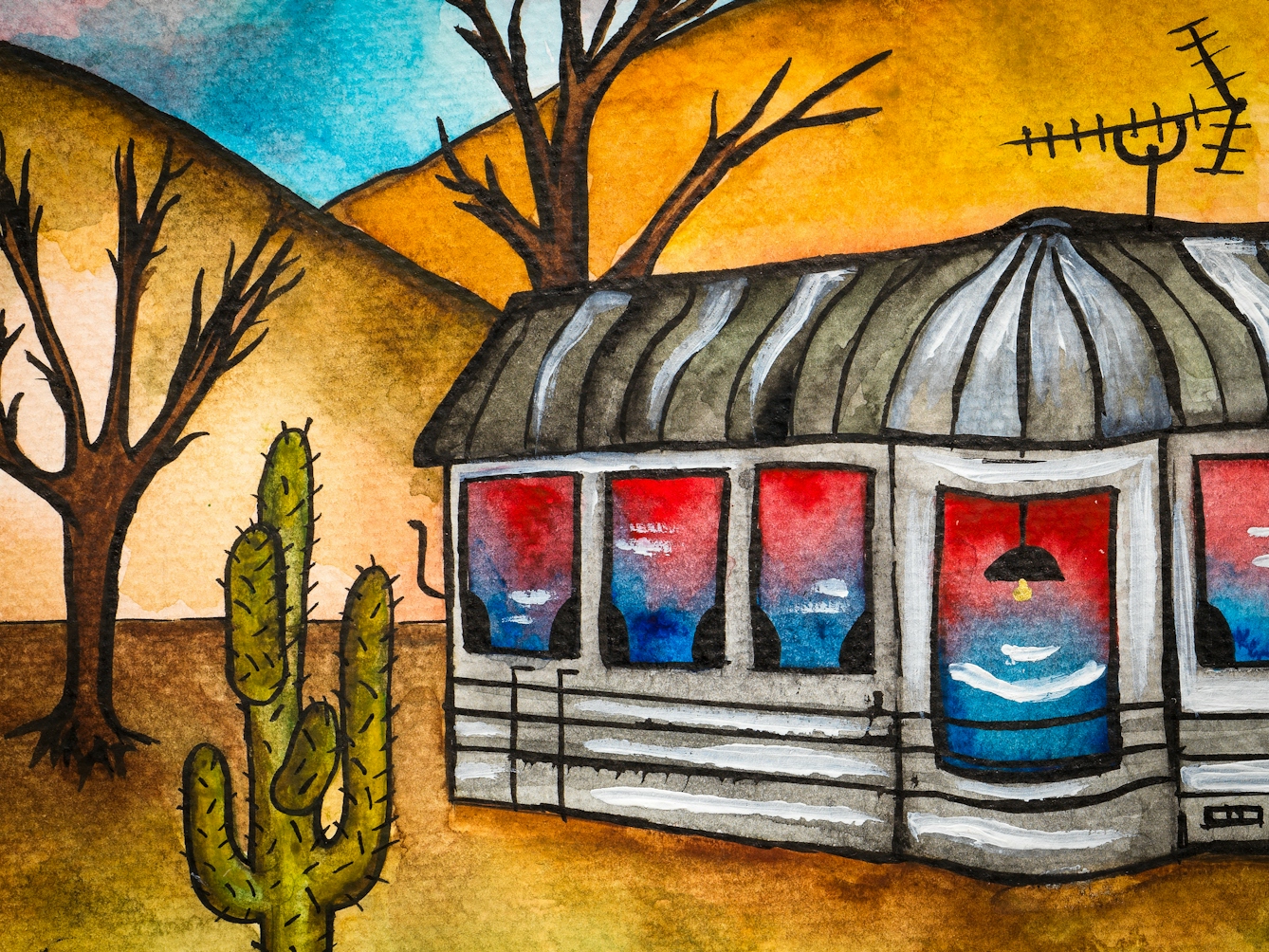
“Writing these words, I remember eating a cheese sandwich in a diner that was also a gas station, at a zinc counter that sparkled like 1952.”
Am I imagining this film, bringing a still image to life? This was the week my divorce was finalised. My son was with his grandmother, baking cookies in an American childhood I was curating without, I have to say, much flair. The most I could do, back then, was march him to the bookstore, plonk him down in front of the outsize books featuring dinosaurs and/or monster trucks, then fling myself on the goth barista of the in-house coffee shop and order a cappuccino with coins retrieved from under sofa cushions and jacket pockets.
Thus, being in a city Jack Kerouac visited once, casually describing the women he met there, on its outskirts, as “the most beautiful” women he’d ever met, was an extraordinary change. Mendieta’s art filled me to the brim, offering a way through. Through what? To what? I don’t remember what we ate, or where we slept. No, writing these words, I remember eating a cheese sandwich in a diner that was also a gas station, at a zinc counter that sparkled like 1952.
Struggling to connect
Who are we when we are not with each other? Who are we when we are not alone?
I am not sure where these questions come from, but here they are, prickling at the tips of my fingertips, then pouring out as I type up this memory of an art museum in 2004. I’m thinking of Mendieta, so many years later, as I negotiate my return to England after half my lifetime in another place. Negotiate: the wrong word. I’m in shock as the darkness falls each night, like a lid, at 4 p.m.
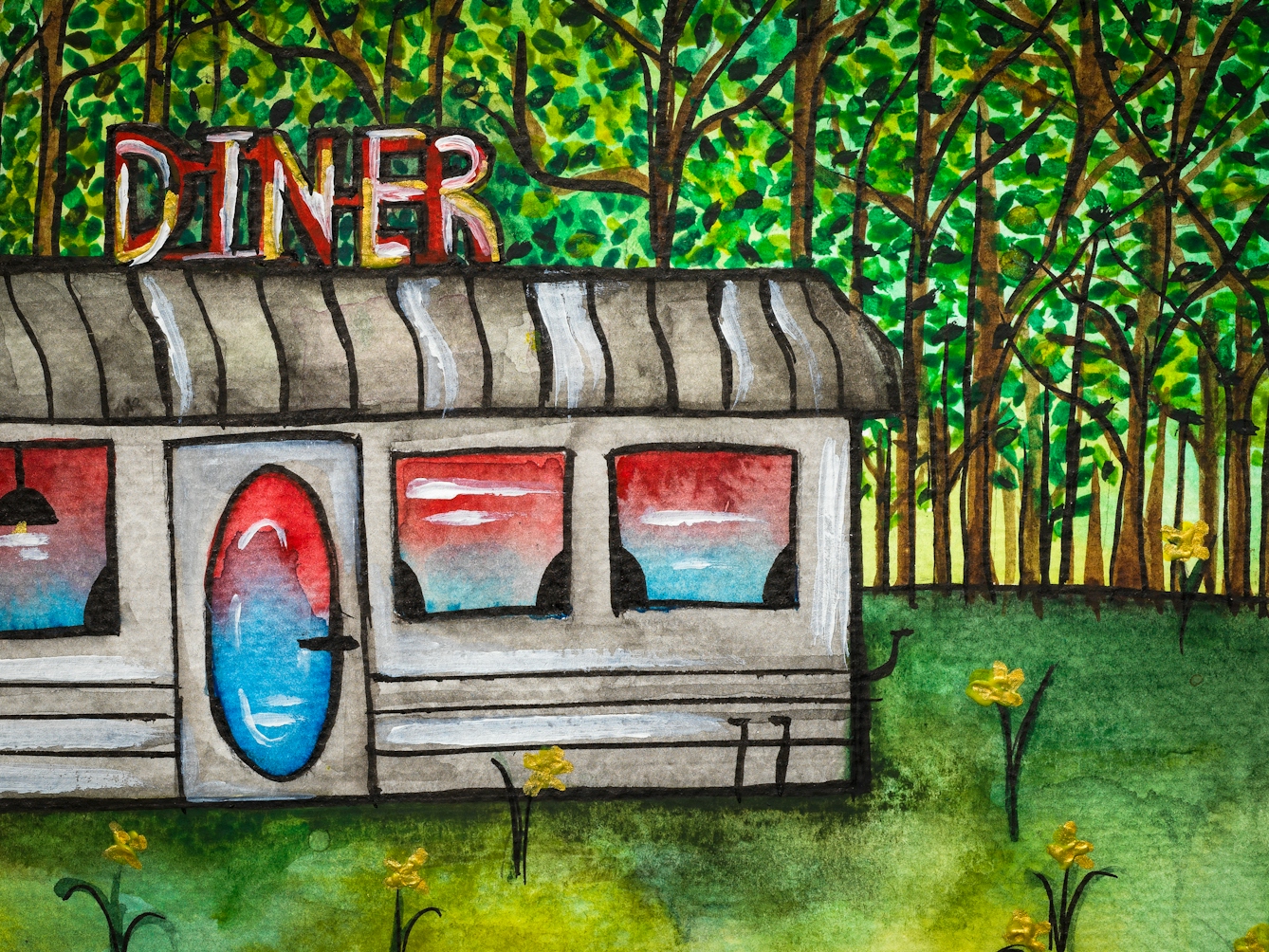
“England is my birthplace, and so I’m stunned by the misrecognition: the awkwardness of greeting a passer-by, for example.”
I’m in shock as the darkness falls each night, like a lid, at 4 p.m.
England is my birthplace, and so I’m stunned by the misrecognition: the awkwardness of greeting a passer-by, for example. You’re the only two people in a scrappy field. You pass within three feet of each other. “Good afternoon!” At this exact moment, the other person looks away. Or perhaps (this has happened more than once), they recoil in shock! It’s okay. I understand. And adapt, swiftly.
One day I notice that my clothes are too casual, and buy a coat from Marks & Spencer as an antidote. It is a conservatively cut winter coat in a leopard-skin print. I pass a woman – in her 40s, blonde-grey hair swept back in a tortoiseshell clip – and squeal, patting my sleeve triumphantly: “Hey! Same coat.” She looks horrified. I completely understand. When did I become so scruffy, loud and wild?
I’m still insured by my workplace in the US, and so I resume Zoom therapy with a counsellor in Colorado, J. I tell J I am struggling to connect, that I feel as if I can’t find a way to adhere to the surfaces of the place I am in.
I describe my discomfort in social settings, and the pre-emptive embarrassment I sometimes feel before entering situations that will require me to inhabit a certain role. That I flinch. That I sometimes feel numb. That I keep trying to connect, even with nature, with the trees and the plants and the flowers, but that it all feels so strange. That I can’t take it in.
It’s then that J says something that helps me so profoundly, I thought I’d simply repeat it here. She says: “Perhaps it’s not that you have to absorb this place, but rather, that you have to let it absorb you.”
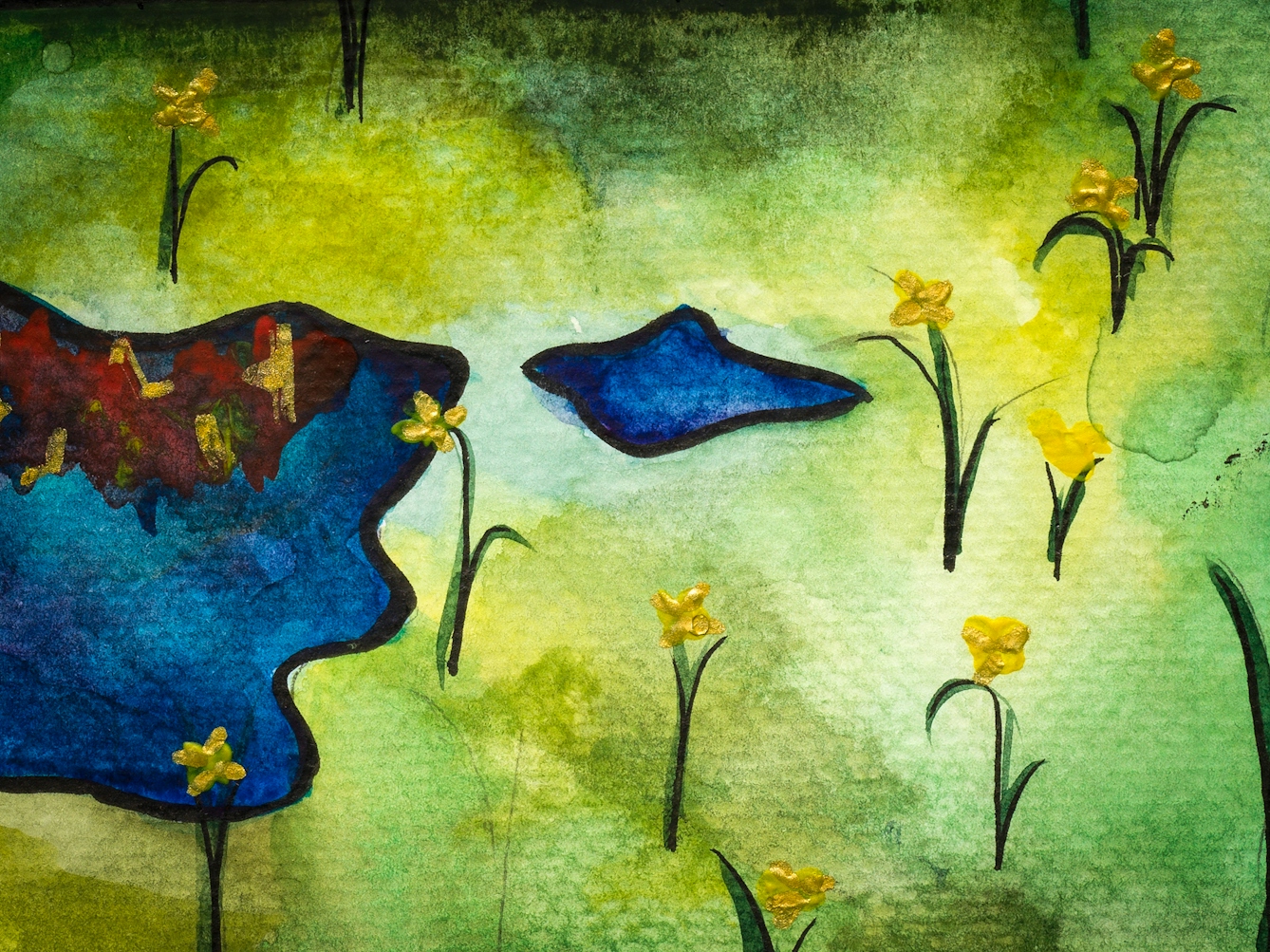
“I stop and stare at trees as the light begins to change, and I no longer pick a daffodil without inviting consent.”
Slow walks and revelations
The pandemic begins. Everything stills. I leave my flat and walk until I reach a playing field. Frost. I lie down on the grass. When I stand up, there’s the pale green shape of my body on the ground. I start to take very slow walks, taking in the start of spring when it comes: the incremental revelation of a quince, then a magnolia, and now a cherry blossom at dusk.
I stop and stare at trees as the light begins to change, and I no longer pick a daffodil without inviting consent. The consent is non-human.
One day my mother says: “When I was in India, and we memorised Wordsworth’s poem, I didn’t know what a daffodil was. We didn’t have photos, and nobody we knew had ever seen one. We didn’t know how to pronounce it! Duff-o-dhil, I used to say, and my classmates laughed.
“Then when we came to England, and I saw them for the first time, I thought, yes, they are brighter than the sun. But one day, I realised even Wordsworth got that wrong. It’s not only the daffodils that suction the sun’s energy. Perhaps it’s the other way around! Perhaps it’s the sun that suctions its light from the yellow flowers!”
That day, a few weeks ago, walking with my mother, who I returned to England to care for, with my sister, I realised I felt like myself again. The next morning, I let the tap run until the water was cold. I filled a glass of water. I opened the front door. I held the glass up to the morning sun. Then tilted it. To pour the water. Into the dirt of our shabby garden. The mint and the nettles poking through. And then the morning after that.
Keep looking at the sun through the vertical stream. Pour the water so slowly it begins to rotate, like a braid. Don’t look away. Every morning, try to be here – that is the only ritual I know.
About the contributors
Bhanu Kapil
Bhanu Kapil is a poet and Fellow of Churchill College. She is the author of six books, most recently ‘How To Wash A Heart’ (Pavilion Poetry), which won the T S Eliot Prize. Bhanu is also the recipient of a Cholmondeley Award from the Society of Authors, and a Windham-Campbell Prize from Yale University. Forthcoming work includes a revised edition of ‘Incubation: A Space for Monsters’ (Kelsey Street Press).
Maïa Walcott
Maïa is a Social Anthropology undergraduate at the University of Edinburgh and a multidisciplinary artist working with sculpture, painting, illustration and photography. Her work has been widely published and exhibited, appearing in the anthology ‘The Colour of Madness’ and as part of ‘Project Myopia’. Maïa was also the in-house illustrator for the literary magazine The Selkie, and photographer for photo exhibitions such as ‘The I'm Tired Project’ and ‘Celestial Bodies’.
